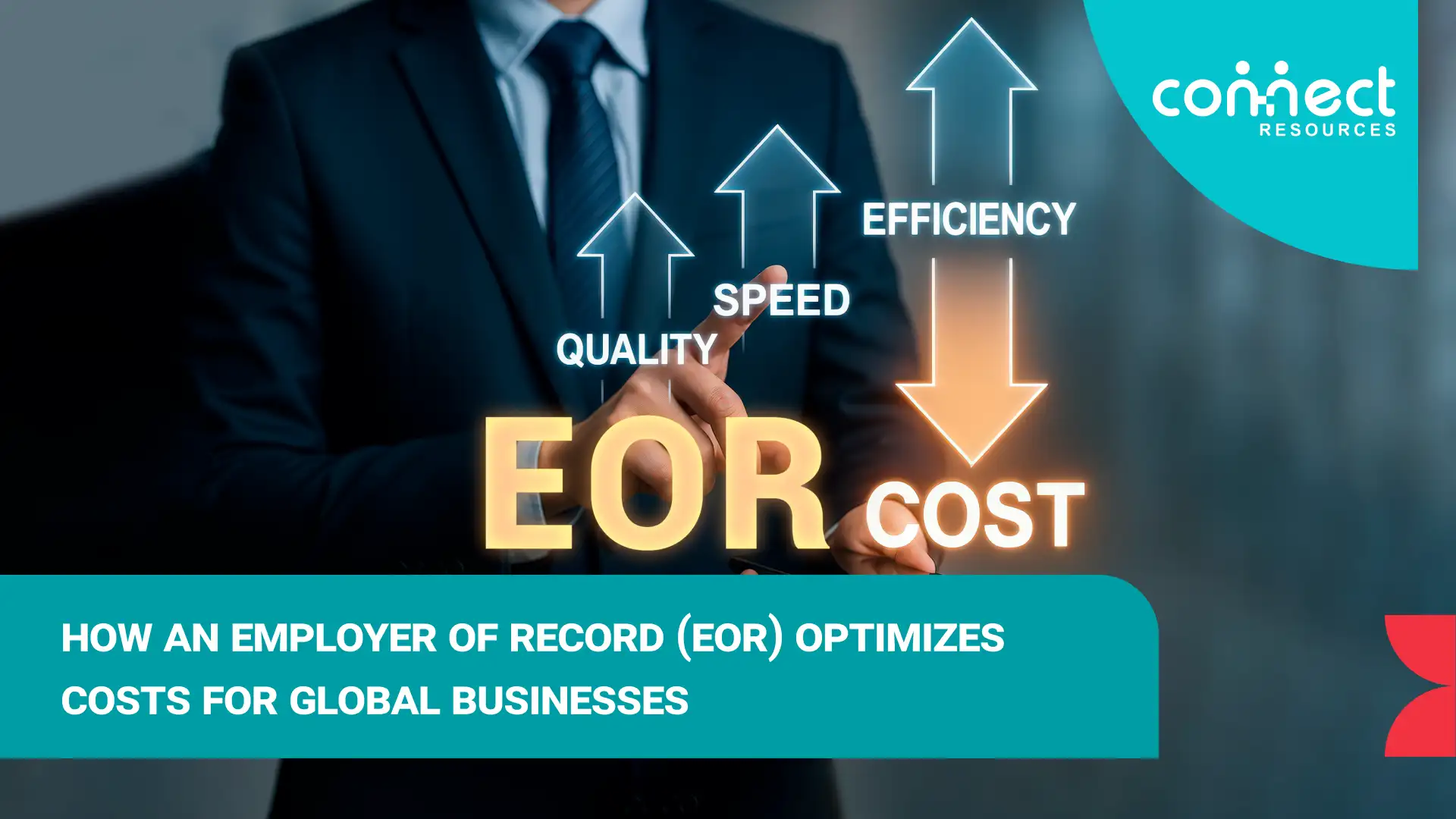Not long ago, the new Labour Law in the UAE took effect and it has been making changes in several aspects. For example, there are new changes and details related to Employee Benefits in the UAE that you should know about. And whether you are an employer or an employee, getting information is vital if you work in the UAE.
In this article, you will find all the information you need to know about Employee Benefits in the UAE. Here you can find a detailed guide about each detail of this topic and its changes in the Labour Law. In this way, you will be able to provide these benefits to your employees compliantly if you are a business owner. Let us observe:
- What are the employee benefits that workers can get in the United Arab Emirates?
- How does the coverage of the new Labour Law work in the UAE?
- What should you know about the working week in this country?
- Is it mandatory to have a labour permit in order to hire an employee?
- What do you need to know about specified-term contracts in the UAE?
- What are the employer’s obligations according to the new UAE Labour Law?
- Important information about the employee’s salary, basic salary, and deductions
- What should you know about annual leave and other types of leaves?
- Are there other employee benefits that you should know about?
- How can Connect Resources help you get more information about these benefits?
1. What are the employee benefits that workers can get in the United Arab Emirates?
When it comes to Employee Benefits in the UAE, there are many details that all employers must take into consideration. And since the new UAE Labour Law took effect recently, they must be aware of its updates and comply with them. Otherwise, they could get penalties, fines, and other legal problems for not providing employees with their respective benefits and compensation.
For example, some of the employee benefits that all employees should receive are permissions, wages, restrictions on working time, etc. And, at the same time, employees must receive other benefits, like protection from harassment, discrimination, injuries in the workplace, etc. Other important elements that the new Labour Law specifies are the termination of contracts, overtime, end-of-service gratuity, and non-compete clauses.
Although there are many other benefits that should be mentioned, let us start digging deeper into the information on these benefits. Firstly, we will discuss the coverage of the Labour Law and the working week in the UAE. Then, we will further explain other outstanding employee benefits that all workers in the UAE must receive.
2. How does the coverage of the new Labour Law work in the UAE?
As you may know, the UAE Labour Law is applicable to employment in the private sector specifically. In other words, government workers (like armed forces, security personnel, and police) are outside the scope of this law. And the coverage of this law states that any employer in the private sector complies with certain requirements.
For example, it is necessary for employers in the private sector to provide their employees with the required labour permits. However, some locations have their own stand-alone regulations, which apply in lieu of the provisions of the Labour Law. And those are the two financial free zones of the country (Abu Dhabi Global Market and Dubai International Financial Centre).
Although the Labour Law does not contain particular exemptions for these locations, there is a general exemption in respect of civil/commercial laws. And the Federal statute that allows the foundation of these specific free zones contains that general exemption. As for the rest of the free zones, they are generally subject to the UAE Labour Law.
3. What should you know about the working week in this country?
Currently, the public sector will start adopting a Western workweek, which consists of working from Monday to Friday. And the working hours will be eight per day, which will be a total of 40 hours per week. And the private sector is expected to follow the same schedule as the public sector.
Nonetheless, the new Labour Law still continues to stipulate a working week consisting of 6 days per week. And, although Friday used to be the official day of rest, it will be no longer the same. However, this law gives scope to remote employees, who can agree on their working hours with their employees.
One of the main Employee Benefits in the UAE is related to the working hours. If an employee works for more than the required hours, they will receive compensation. And this compensation must be equal to basic salary plus an additional 25 percent. But if they work overtime after 10 p.m. and before 4 a.m, the compensation is the basic salary plus 50 percent.
4. Is it mandatory to have a labour permit in order to hire an employee?
As we mentioned before, employers in the private sector must provide each of their employees with a labour permit. And it could be an error to hire a new employee and make them work without a labour permit. In the same way, the employee should not work if there is not a suitable work permit for them.
Although these cases are not new, the penalties that the law stipulates for allowing them to happen are significant. On the other hand, remember that the labour permit requirement also applies notwithstanding the abundance of newly available visas. Due to this, decoupling employment from residency is now possible.
So, a person holding any visa must still get a labour permit to work legally in the country. And besides, employers must remember this detail when hiring new employees in the United Arab Emirates.
5. What do you need to know about specified-term contracts in the UAE?
Another aspect that you should know about Employee Benefits in the UAE is related to specified-term contracts. Under the law, an employment contract must be valid for a specific period, which cannot be more than 3 years. And, if all involved parties agree, that contract can be renewed so it can be valid for more time.
Although the law does not acknowledge unspecified-term contracts, you can find no effective distinction between unspecified and specified-term contracts. That is regards termination of services or end-of-service gratuity, which is a considerable change.
Employers must comply with the new law and terminate unspecified-term contracts that concluded under the previous law. But they must terminate them within a specific period of time that varies depending on each case.
If the employee served for less than 5 years, the contract must be terminated with at least a 30-day written notice. But in case the employee served for more than 5 years, then it is necessary a 60-day written notice. And if the employee’s period of service is more than 10 years, a 90-day written notice is necessary.
6. What are the employer’s obligations according to the new UAE Labour Law?
There is a certain number of particular obligations that all employers that work under the Labour Law have. One of those obligations is that an employer must not retain the employee’s official documents if the contract is terminated. This became an obligation since many employers tend to retain their employees’ passports in some cases, which is illegal.
On the other hand, employers must provide their employees with the required training and onboarding process. Besides, they must also cover the costs of their employees’ health care by providing medical insurance coverage. Some other obligations are regarding putting in place workplace rules, which must include sanctions for misconduct.
There could be many other obligations that may be implemented by several authorities, like Executive Regulations, Cabinet Resolution, and other UAE laws. If you need more information about this detail, make sure to contact a specialist.
7. Important information about the employee’s salary, basic salary, and deductions
As part of the Employee Benefits in the UAE, it is vital to take into account these elements. But first, you should know about the difference between salary (or wage) and basic salary. The first concept covers everything that the employee receives when working as an employee. And the second concept is the cash component of this overall compensation package, excluding any benefits or allowances.
As for the deductions from the salary, there are several types that have been modified in the new Labour Law. For example, these are some of the deductions that employers may make from their employees’ salaries:
- In the case of recovery of advance payments, the cap increased from 10% of each salary payment to 20%.
- In the case of payment of a debt pursuant to a court order up to one-quarter of the salary.
There are many other cases where there can be deductions, and in all those cases, the total deductions may not exceed 50% of the employee’s salary.
8. What should you know about annual leave and other types of leaves?
Although the provisions that require 30 days of paid annual leave remain the same, there is a slight change. And that is that employers and employees may state in the contract that annual leave begins accruing during the probation period. If an employee has unused annual leave when the contract ends, they will cash it in pro-rata based on their basic salary.
Employee Benefits in the UAE also include other types of leaves, such as maternity leave, sick leave, and many more. During the modification of the Labour Law, rules related to these leaves had minor changes. And now there are new types of leaves, including bereavement leave, parental leave, unpaid leave, leaves for educational purposes, etc.
9. Are there other employee benefits that you should know about?
Of course, there are many other Employee Benefits in the UAE that all employers and employees should be aware of. For instance, some of those are related to the following aspects:
- Workplace injuries.
- Notice.
- Contract termination.
- End-of-service gratuity.
- Non-competitions obligation.Disciplinary measures.
- Probationary period.
- Forms of contracts.
- Disputes.
The best way to know in detail every single aspect of Employee Benefits in the UAE is by contacting an expert. With the guidance of an expert, you will be able to understand the UAE Labour Law and comply with it. Plus, your employees will obtain their benefits and compensation satisfactorily.
10. How can Connect Resources help you get more information about these benefits?
In case you need guidance on Employee Benefits in the UAE, Connect Resources will provide you with everything you need. Our specialists will give you all the information you need to know about the benefits that your employees must receive. But in case you want to improve your HR operations, we can also help you with that.
Connect Resources offers the most suitable HR services and solutions so your company complies with the law at all times. Besides, your employees will be also satisfied if they receive all their respective benefits on time and without errors. You can request our payroll outsourcing services and other solutions you might require to improve your HR department significantly.
Would you like to contact our team to obtain more information about employee benefits? If you have any questions regarding our services, feel free to call us on 00 971 433 16 688. You may also write us at contact@connectresources.ae where you will talk to one of our representatives who will gladly answer all of your questions.
Aside from that, if you want to find the most convenient job opportunities for you, make sure to visit thetalentpoint.com. There, you will need to submit your CV or resume to start searching for your dream job effortlessly. Moreover, you can also send your applications at contact@thetalentpoint.com.











